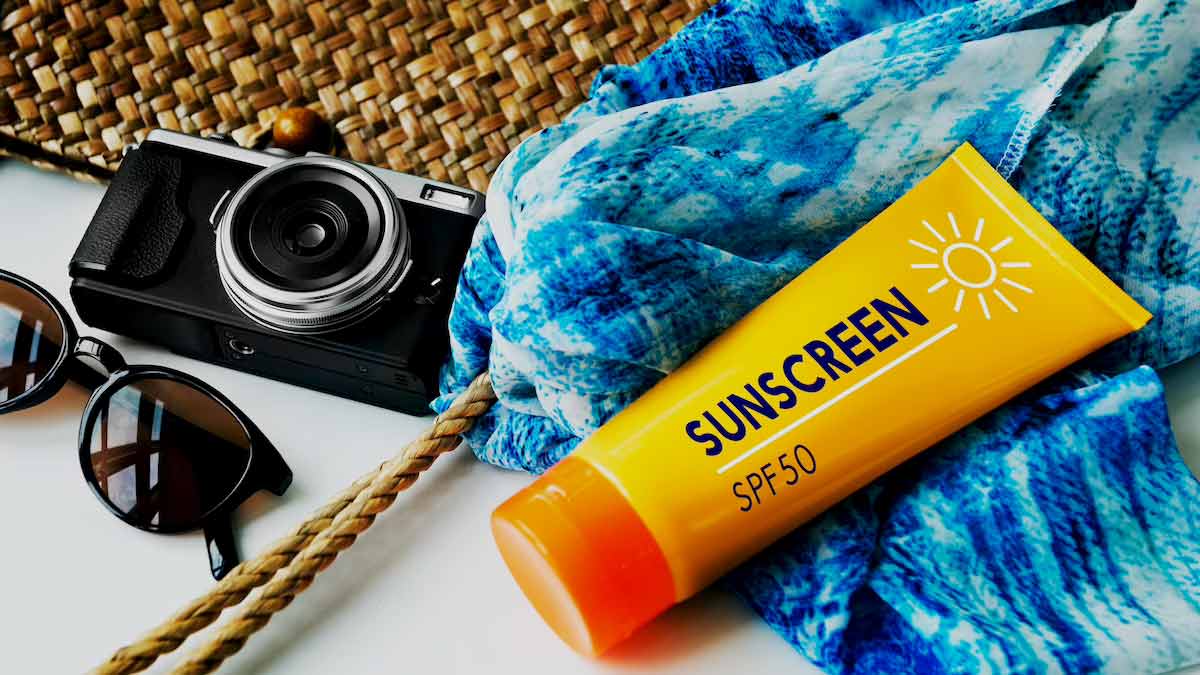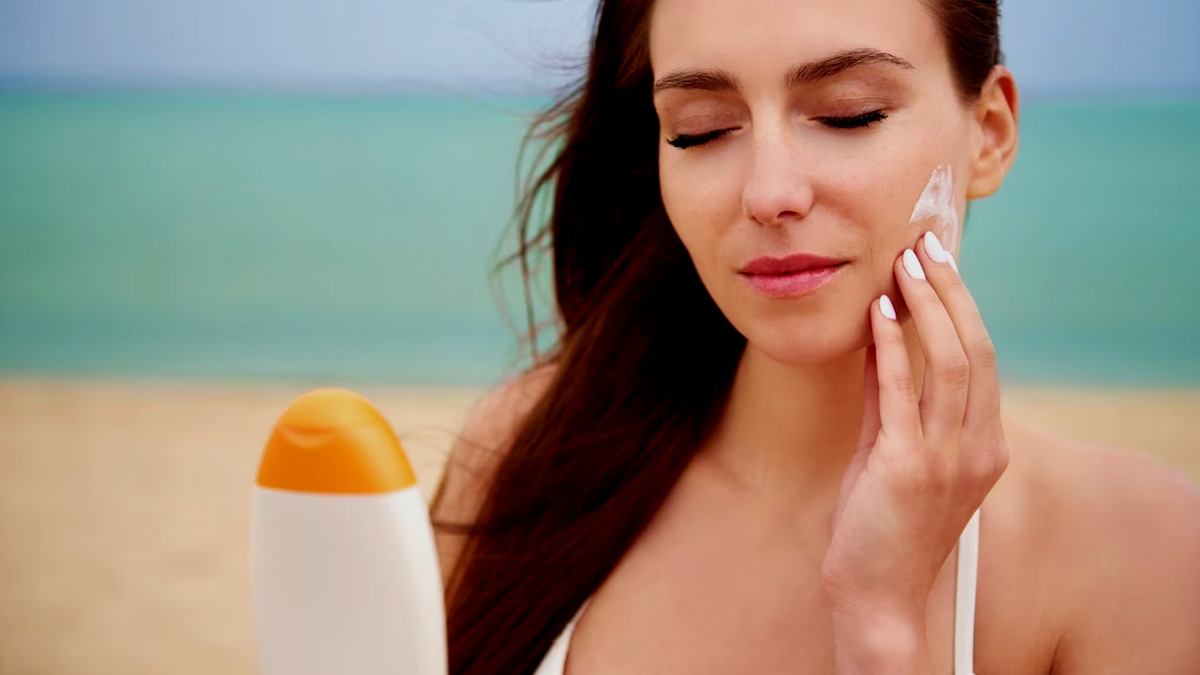

Sunscreen is a great way to protect the skin from harmful Ultraviolet (UV) Rays, preventing sunburn. Regular use is said to significantly reduce the risk of developing skin cancers, including melanoma, squamous cell carcinoma, and basal cell carcinoma, which are often linked to UV exposure. But how do you know which sunscreen to choose?
In an interaction with the OnlyMyHealth team, Dr Monica Chahar, Chief Dermatologist and Director-Skin Décor, New Delhi, says, “To begin this quest, acquaint yourself with your skin type. Here are some tips she shares.
Also Read: Managing Wrinkles: Skincare Tips For People In Their 40s And 50s
Know Your Skin Type

Skin types are categorised based on their characteristics and how they react to various environmental factors and skincare products. The main skin types are:
Normal skin: Balanced skin type with adequate moisture and oil production, minimal imperfections, and good elasticity.
Dry skin: Lacks sufficient moisture, often feels tight and flaky, and may be prone to fine lines and sensitivity.
Oily skin: Excessively produces sebum, resulting in a shiny appearance, enlarged pores, and a higher likelihood of acne and blemishes.
Combination skin: A combination of oily and dry areas, typically with an oily T-zone (forehead, nose, and chin) and drier cheeks.
Sensitive skin: Easily reacts to environmental factors and certain skincare products, often leading to redness, irritation, or itching.
Identifying your skin type is essential for choosing appropriate skincare products and routines that cater to its specific needs. “Oily skin benefits from lightweight, non-comedogenic formulas, while dry skin thrives with moisturising sunscreens. Those with sensitive skin should seek products with gentle, hypoallergenic ingredients,” says Dr Chahar.
Also Read: Dentist Shares Ways To Manage Your Wisdom Tooth Pain
Choosing The Right Sunscreen

According to Dr Chahar, UVA rays cause premature ageing, which are notorious for sunburn, which is why your ideal sunscreen must shield you from both of these harmful forces of ultraviolet radiation.
“The Sun Protection Factor (SPF) becomes your loyal ally in this quest. Experts recommend an SPF of at least 30, providing 97% filtration power against UVB rays,” she says, adding, “Higher SPF values offer stronger protection, but even the bravest sunscreens can’t block all of the sun’s rays.”
As per the Skin Cancer Foundation, regular daily use of SPF 15 sunscreen can reduce your risk of developing squamous cell carcinoma (SCC) by about 40%, and lower your melanoma risk by 50%.
Those who sweat a lot, the doctor recommends choosing a sunscreen that can withstand aquatic escapades or intense workouts.
Sunscreen Ingredients To Choose And Avoid

Dr Chahar says, “Navigate the vast landscape of sunscreen ingredients and seek allies like zinc oxide and titanium dioxide, providing impeccable protection for sensitive skin. Chemical filters like avobenzone and Mexoryl SX guard against UVA rays, while octyl salicylate and octinoxate defend against UVB rays.”
“Beware of deceptive foes in some sunscreens. Ingredients like oxybenzone, octocrylene, and retinyl palmitate can wreak havoc on sensitive skin or disrupt hormones,” she warns.
Other Factors To Note
Here are some other factors to note while choosing a sunscreen:
- Check the expiration date to ensure the potency of the shield
- Choose higher SPF and water-resistant sunscreens to suit prolonged outdoor activities, and lighter formulas for indoor quests
- Perform a patch test
- Honour your skin type, embrace broad-spectrum protection, value water resistance, and cherish suitable ingredients
Conclusion
“Always remember the importance of consistent and proper sunscreen application,” advises Dr Chahar. She concludes by saying, “With the right knowledge and careful selection, confidently embrace the sun, knowing your skin is well-guarded for any adventure life brings.”
اكتشاف المزيد من ينبوع المعرفة
اشترك للحصول على أحدث التدوينات المرسلة إلى بريدك الإلكتروني.
